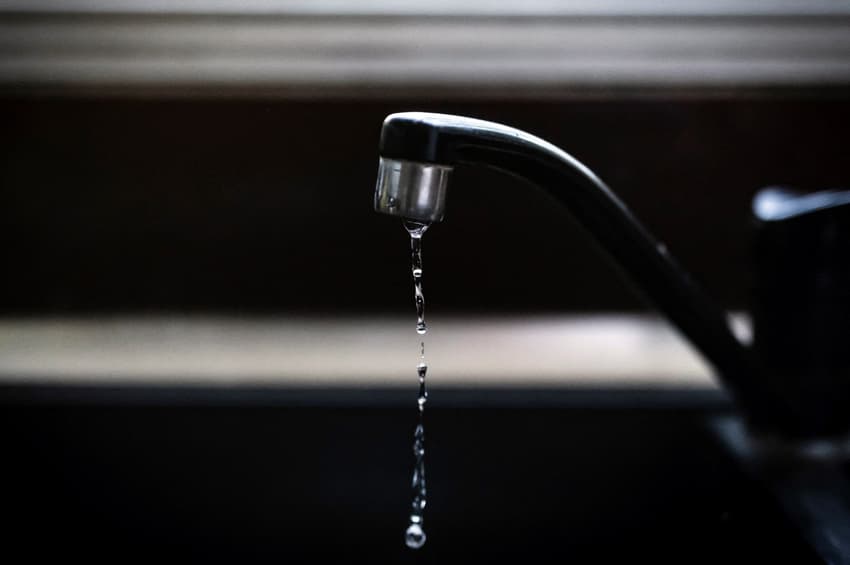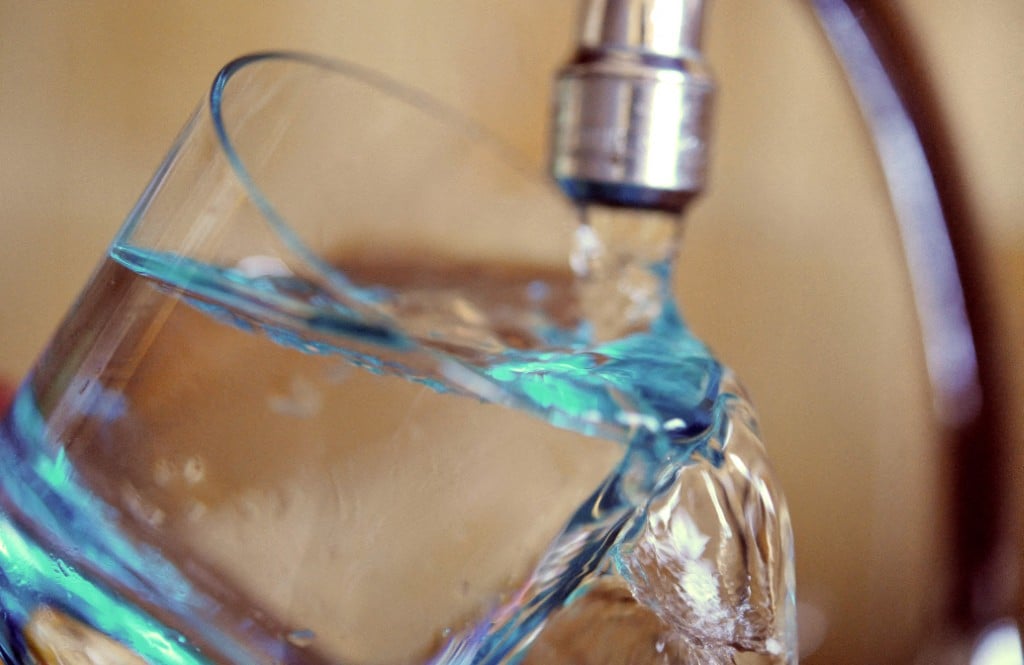Reader question: Is tap water safe to drink in Italy?

Italians are famously reluctant to drink tap water, with some questioning its safety. But are these concerns justified?
If you’ve spent much time in Italy, chances are you’ve noticed Italians’ reluctance to consume tap water. Most households seem to prefer bottled water (acqua in bottiglia), and requests for tap water at a restaurant are often frowned upon - or, at times, even denied.
According to a survey from market research firm CSA Research, only 29.2 percent of people in Italy drink tap water every day, while nearly half (43.3 percent) drink exclusively bottled water.
Each Italian consumes an average of 208 litres of bottled water every year, the survey says, making Italy the biggest consumer of bottled water in Europe and the second-biggest worldwide after Mexico, with 244 litres per capita per year.
READ ALSO: What is it with Italians and bottled water?
Nearly 29 percent of those who only drink bottled water say they do so because they don’t like the taste of tap water, while nearly four in ten claim they don’t ‘trust’ tap water and around three in ten consider bottled water to be safer.
But are these concerns justified? According to Italy’s Water Research Institute, IRSA, water around Italy is not only perfectly safe to drink but also the fifth-best in Europe for overall quality after water in Austria, Sweden, Ireland and Hungary.
One of the main reasons for this is that some 85 percent of the water in the national supply network comes from groundwater sources, which are largely considered safer than surface sources.

Only 29.2 percent of people in Italy drink tap water every day. Photo by Fred TANNEAU / AFP
Further, according to Alessandro Russo, CEO of Milan’s water network operator CAP Group, tap water in Italy is subject to a series of “constant controls” which abide by “parameters regulated by very stringent national and European laws and standards”.
Italian network operators must comply with the World Health Organisations’ Water Safety Plans (WSP) and, as of March of last year, a 2020 EU directive setting tougher limits on contaminants than previous regulation.
But while official sources tend to agree on the safety and quality of tap water in Italy, there are occasional incidents involving its water network (see cases of contamination in Matera and Brescia).
More recent reports from environmental activist group Greenpeace have raised new safety concerns.
Last October, a Greenpeace report revealed the presence of human-made chemicals known as PFAS – which have been linked to thyroid disease, immune system and fertility problems as well as some types of cancer – in ten different municipalities (comuni) in Lombardy.
PFAS concentrations were found to have exceeded EU limits in four comuni: Caravaggio and Mozzanica, in the Bergamo province, and Corte Palasio and Crespiatica, in the Lodi province.
Another Greenpeace report published in February found PFAS in the water supply of over 70 comuni in Piedmont, with higher concentrations registered in the Alessandria province.
READ ALSO: The most polluted towns in Italy in 2024
Experts have said there’s no cause for alarm: Stefano Polesello, a researcher with IRSA in Monza, told Il Corriere della Sera that “PFAS are present in all types of water nowadays, and have been measured even in rainfall in remote areas”.
As such, the public can “continue drinking tap water because it’s generally controlled” and the only way to avoid PFAS “would be to stop drinking and eating altogether, which is an impracticable solution.”
The issue is not unique to Italy. Last November, PFAS chemicals were detected in drinking water sources at 17 of 18 water companies in England.
In early 2023, the Forever Pollution Project – a cross-border investigation by 16 European newsrooms – revealed that nearly 23,000 sites all over Europe are contaminated by PFAS chemicals.
Comments (1)
See Also
If you’ve spent much time in Italy, chances are you’ve noticed Italians’ reluctance to consume tap water. Most households seem to prefer bottled water (acqua in bottiglia), and requests for tap water at a restaurant are often frowned upon - or, at times, even denied.
According to a survey from market research firm CSA Research, only 29.2 percent of people in Italy drink tap water every day, while nearly half (43.3 percent) drink exclusively bottled water.
Each Italian consumes an average of 208 litres of bottled water every year, the survey says, making Italy the biggest consumer of bottled water in Europe and the second-biggest worldwide after Mexico, with 244 litres per capita per year.
READ ALSO: What is it with Italians and bottled water?
Nearly 29 percent of those who only drink bottled water say they do so because they don’t like the taste of tap water, while nearly four in ten claim they don’t ‘trust’ tap water and around three in ten consider bottled water to be safer.
But are these concerns justified? According to Italy’s Water Research Institute, IRSA, water around Italy is not only perfectly safe to drink but also the fifth-best in Europe for overall quality after water in Austria, Sweden, Ireland and Hungary.
One of the main reasons for this is that some 85 percent of the water in the national supply network comes from groundwater sources, which are largely considered safer than surface sources.

Further, according to Alessandro Russo, CEO of Milan’s water network operator CAP Group, tap water in Italy is subject to a series of “constant controls” which abide by “parameters regulated by very stringent national and European laws and standards”.
Italian network operators must comply with the World Health Organisations’ Water Safety Plans (WSP) and, as of March of last year, a 2020 EU directive setting tougher limits on contaminants than previous regulation.
But while official sources tend to agree on the safety and quality of tap water in Italy, there are occasional incidents involving its water network (see cases of contamination in Matera and Brescia).
More recent reports from environmental activist group Greenpeace have raised new safety concerns.
Last October, a Greenpeace report revealed the presence of human-made chemicals known as PFAS – which have been linked to thyroid disease, immune system and fertility problems as well as some types of cancer – in ten different municipalities (comuni) in Lombardy.
PFAS concentrations were found to have exceeded EU limits in four comuni: Caravaggio and Mozzanica, in the Bergamo province, and Corte Palasio and Crespiatica, in the Lodi province.
Another Greenpeace report published in February found PFAS in the water supply of over 70 comuni in Piedmont, with higher concentrations registered in the Alessandria province.
READ ALSO: The most polluted towns in Italy in 2024
Experts have said there’s no cause for alarm: Stefano Polesello, a researcher with IRSA in Monza, told Il Corriere della Sera that “PFAS are present in all types of water nowadays, and have been measured even in rainfall in remote areas”.
As such, the public can “continue drinking tap water because it’s generally controlled” and the only way to avoid PFAS “would be to stop drinking and eating altogether, which is an impracticable solution.”
The issue is not unique to Italy. Last November, PFAS chemicals were detected in drinking water sources at 17 of 18 water companies in England.
In early 2023, the Forever Pollution Project – a cross-border investigation by 16 European newsrooms – revealed that nearly 23,000 sites all over Europe are contaminated by PFAS chemicals.
Join the conversation in our comments section below. Share your own views and experience and if you have a question or suggestion for our journalists then email us at [email protected].
Please keep comments civil, constructive and on topic – and make sure to read our terms of use before getting involved.
Please log in here to leave a comment.